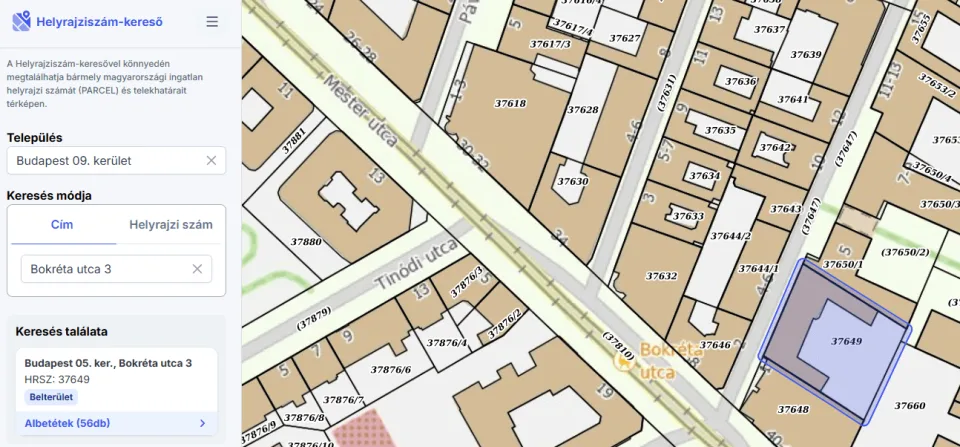Dr. Illés Géza Márton
• 8 perc olvasás
Buying a Property in Hungary
Foreigners buying property Hungary - never easy
First of all, let’s clarify the most important question: Can foreigners buy property in Hungary?
Yes, they can.
When buying property in Hungary, Budapest remains the most attractive entry point for both domestic and international investors.
It is:
- The economic center of Hungary
- The country’s administrative, financial, and cultural hub
- Strong in infrastructure, public transport, and international connectivity
- Still more affordable than many Western European capitals
- Offering lower entry prices compared to Vienna or Prague
For international investors looking at the Hungary real estate market, Budapest functions as the primary gateway city. Liquidity is higher, resale potential is stronger, and rental demand is more stable than in most provincial areas.
This guide explains the essential steps of buying property in Hungary, highlights the common pitfalls foreigners often face, and walks you through the legal checks that protect your investment.
Tartalomjegyzék
- Take Your Time: Why Careful Planning and Loan Pre-Approval Matter
- Loan Pre-Approval: It's Available in Hungary
- Financial Planning and Risk Assessment Before Signing Anything
- Negotiating "Preliminary Contracts" and Fixed Terms
- Pitfalls of Buying Property in Hungary
- Investigating the Developer’s Track Record
- Buying a Garage: Securing Pre-emption Rights
- What is the Process of Buying a Newly Built Apartment in Hungary?
- Conclusion
- Kapcsolatfelvétel
- Gyakran ismételt kérdések
Take Your Time: Why Careful Planning and Loan Pre-Approval Matter
Many people—especially foreigners buying property in Hungary for the first time—are surprised by how fast the Hungarian real estate market can move. New-build apartments, in particular, are often marketed with urgency. Developers and agents may emphasize:
- High demand (“several buyers are interested”),
- Limited availability, or
- Fast sales and price increases
even when the situation is not always as dramatic as it sounds. This pressure can make buyers feel they must commit immediately or risk losing the apartment.
But a property purchase in Hungary is a major financial and legal decision. Acting too quickly can lead to costly mistakes—especially if you’re not fully informed about financing, timelines, or legal risks.
Why Slowing Down Actually Protects You
Taking time to assess your financing options and legal obligations helps you avoid signing a contract that doesn’t match your long-term financial situation. It also strengthens your position when negotiating with the seller or developer.
Loan Pre-Approval: It's Available in Hungary
If you plan to take out a mortgage in Hungary, loan pre-approval is one of the most effective tools to reduce risk and stress. It offers several benefits:
✔ Clear, realistic budget
Pre-approval tells you exactly how much the bank is willing to lend. This prevents you from committing to a property that later turns out to be outside your borrowing capacity.
✔ Predictable lending terms
You will know the interest rate, repayment period, and conditions in advance, rather than discovering stricter rules during the sale.
✔ Fewer contract complications
One of the most common pitfalls for foreigners buying property in Hungary is discovering—after signing the sales contract—that the bank will not finance the purchase as expected. Pre-approval significantly reduces this risk.
Financial Planning and Risk Assessment Before Signing Anything
A calm, structured planning phase allows you to move forward confidently—even in a competitive market. Focus on these steps:
1. Set a maximum, realistic budget
Include not only the purchase price but also:
- lawyer’s fee,
- property transfer tax,
- land registry costs,
- bank charges, and
- potential renovation or furnishing expenses.
This is particularly important for international buyers who are unfamiliar with Hungarian closing costs.
2. Prepare for unexpected expenses
Delays in construction, changes in delivery dates, developer-side modifications, or price adjustments can all affect your total cost. A financial buffer protects you against surprises.
3. Understand long-term risk factors
Interest rate changes, fluctuations in the forint (HUF) if your income is in another currency, and changes to foreign-ownership rules can all influence the long-term security of your investment.
Looking for mortgage pre-approval and prefer to work with our English-speaking banking partners? Simply fill out the form below and we’ll connect you with the right expert.
Financing from a Hungarian Retail Bank?
A successful property purchase starts with the right financing strategy - even if you are a foreign national with a foreign address and foreign-source income.
Read MoreNegotiating "Preliminary Contracts" and Fixed Terms
When purchasing newly built apartments, developers or sellers often present standardized preliminary contracts that seem fixed and non-negotiable. However, in many cases, buyers have the option to negotiate certain aspects of these agreements, especially if the seller is motivated to close the deal. Here’s how to approach it:
Identify Negotiable Terms
Key areas often open for negotiation include:
- Payment Schedule: Requesting an extended payment timeline can ease financial strain, allowing you to better align payments with cash flow or loan disbursements.
- Deadlines and Delivery Dates: You may negotiate stricter penalties for delays or request greater flexibility on handover dates to ensure you’re protected if construction timelines slip.
- Warranty and Guarantee Terms: Often, warranties can be extended or clarified to cover additional aspects, ensuring you’re protected against construction defects for a reasonable period after handover.
Evaluate the Seller’s Flexibility
Sellers are typically more willing to negotiate under certain conditions, such as:
- Extended Time on Market: If the property has been listed for a while, the seller may be more willing to adjust terms to secure a sale.
- Slow Sales Pace: A developer facing sluggish sales or financial pressures may prioritize closing the sale over maintaining strict contract terms.
Leverage Legal Support
Engaging a real estate lawyer familiar with newly-built property sale and purchase contracts can be invaluable. An experienced real estate lawyer can:
- Identify Opportunities for Negotiation: By reviewing contract terms, a lawyer can pinpoint clauses that might put you at a disadvantage and suggest amendments that better protect your interests.
- Assist in Renegotiations: With a lawyer’s guidance, you’re better positioned to counter standard terms and secure a fairer contract that mitigates your long-term financial and legal risks.
Illés and Szabó Lawyers' Association
Work With Hungary's No.1 Property Lawyer Team
H-1024 Budapest, Lövőház utca 2-6.

Pitfalls of Buying Property in Hungary
Newly built properties typically come with warranties covering defects or issues that arise after the property is handed over. However, understanding and enforcing these rights can require diligence:
Types of Warranty Coverage
Warranties often cover structural or system-related defects.
Typical terms include:
- General Warranty Period: Covers issues identified at handover and may last between 1-3 years, addressing defects like plumbing, electrical issues, and visible construction flaws.
- Extended Warranty for Structural Elements: Certain parts of the property, such as the foundation or roofing, may come with a longer warranty period (often up to five years).
Proactive Steps for Enforcing Warranties
To maximize warranty benefits, follow these steps:
- Document Defects at Handover: Conduct a thorough inspection and record any issues during handover to ensure they are addressed within the warranty period.
- Schedule Regular Checks: Set reminders to check for emerging issues during the warranty period, as some defects may only become apparent with use.
- Notify the Developer in Writing: Promptly report defects in writing to create a clear record that can be used in case of disputes.
Seeking Remedies if Issues Arise
If the developer fails to address issues within the warranty period:
- Contact Consumer Protection Authorities: If the developer is unresponsive, filing a complaint with consumer protection can prompt corrective action.
- Consider Legal Action: In cases of significant defects or developer inaction, consulting a lawyer about pursuing legal remedies can protect your investment.
By understanding these protections and staying proactive, you ensure the property’s quality and enjoy greater peace of mind in your new home.
Buying Property in Hungary as a Foreigner?
You may need a property purchase permit! Read our article for more information!
Click HereInvestigating the Developer’s Track Record
Before committing to a purchase, researching the developer’s financial stability and track record is essential. If the developer encounters financial issues after signing but before completion, you may risk losing your deposit or face a drawn-out recovery process.
Check the developer's company records and recent financial statements, and examine whether management has been involved in bankruptcies before. Consulting an accountant for this analysis can help you verify the company’s stability. A developer with a solid financial background offers a greater assurance of a successful project.
Buying a Garage: Securing Pre-emption Rights
In newly built complexes, parking spaces are often sold separately, with earlier buyers sometimes holding pre-emption rights. This means they may have priority to purchase available spaces, potentially at favorable rates. To avoid surprises, ensure your contract specifies the designated parking space and that the seller guarantees its availability to you.
What is the Process of Buying a Newly Built Apartment in Hungary?
Buying a newly built apartment in Hungary involves several critical steps that ensure the transaction is secure and legally binding. Here’s a more detailed breakdown:
- Selecting a Property: Choose an apartment based on location, size, budget, and developer reputation. Often, newly built apartments are sold off-plan.
- Due Diligence: A lawyer should check ownership, encumbrances, and building permits to ensure the property is legally sound.
- Preliminary Contract: Sign a preliminary contract (előszerződés), detailing the terms, purchase price, and payment schedule, and pay a deposit (usually 10-20% of the price).
- Finalizing the Sale Contract: This definitive agreement includes payment schedules and transfer of ownership terms. A legal representative should ensure it aligns with Hungarian real estate law.
- Property Acquisition Permit (If Needed): Non-EU citizens might need this permit to purchase property in Hungary. It’s typically granted unless there are security concerns.
- Property Registration: After signing, submit documents to the Land Registry (Földhivatal) to officially register the property in your name.
- Paying Property Taxes: Usually 4% of the purchase price.
Disclaimer
This guide provides general information about buying a newly built apartment in Hungary, including potential legal and financial considerations. It is not a substitute for professional legal advice. Buyers are encouraged to consult a qualified lawyer or financial advisor before making any real estate purchase. While we strive to ensure accuracy, this information may not reflect recent changes in law or real estate practices. We are not responsible for any losses or damages arising from reliance on this information.
Conclusion
Buying a newly built apartment in Hungary offers the opportunity to enjoy a modern, comfortable home, but it’s essential to approach the process with thorough preparation. From carefully reviewing preliminary contracts and securing a bank-approved loan to negotiating terms that align with your needs, each step contributes to a smoother and safer investment.
Taking the time to investigate the developer’s background, ensuring contract terms meet bank requirements, and proactively safeguarding your warranty rights can protect you from unforeseen risks and costs. Engaging your own legal advisor ensures that your interests remain a priority and that the contract reflects fair, balanced terms.
With proper planning and professional support, you can make confident decisions, minimize risks, and fully enjoy the rewards of owning a new home in Hungary. Need any help? Contact us!
Kategóriák:
Kapcsolódó cikkek
 IGM
IGMCsapatunk
Dr. Illés Géza Márton
Tartalomjegyzék
- Take Your Time: Why Careful Planning and Loan Pre-Approval Matter
- Loan Pre-Approval: It's Available in Hungary
- Financial Planning and Risk Assessment Before Signing Anything
- Negotiating "Preliminary Contracts" and Fixed Terms
- Pitfalls of Buying Property in Hungary
- Investigating the Developer’s Track Record
- Buying a Garage: Securing Pre-emption Rights
- What is the Process of Buying a Newly Built Apartment in Hungary?
- Conclusion
- Kapcsolatfelvétel
- Gyakran ismételt kérdések
Kapcsolódó cikkek
Legutóbbi bejegyzések

Ez a lakásvásárlás menete hitellel!
Lépésről lépésre segítjük a lakás adásvételben!
Tovább

Helyrajzi szám kereső - melyik a legjobb módszer?
Hogyan lehet lekérni egy ingatlan helyrajzi számát?
Tovább

Ingatlan adásvétel ügyvédi díj 2026-ban
Próbálja ki kalkulátorunkat
Tovább

Illés és Szabó Ügyvédi Társulás | Ingatlan Adásvétel Ügyvéd | Ingatlan Ügyvéd Budapest
Ismerje meg budapesti csapatunkat
Tovább

A lakás adásvételi szerződés buktatói 2026-ban
Ezek a hibák milliókba kerülhetnek
Tovább

Ajándékba kapott ingatlan eladása 5 éven belül?
Meddig kell SZJA-t fizetni és hogy mivel csökkenthető az adóalap?
Tovább
Ajánlatunk
Adásvételi szerződés
A vételár 0,45%-a(min. 150 000 Ft; max. 600 000 Ft)
Országszerte egységes áron!
- Lakóingatlanra
- 1 garázs
- 1 tároló
- ÁFA
 e-ingatlanügyvédek.hu
e-ingatlanügyvédek.hu